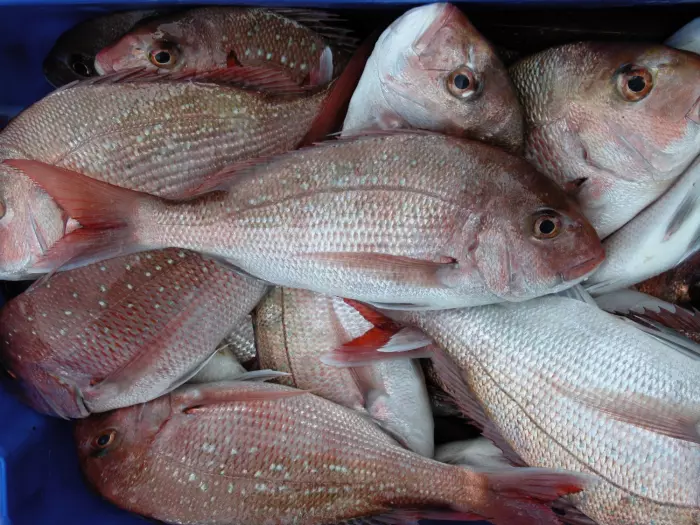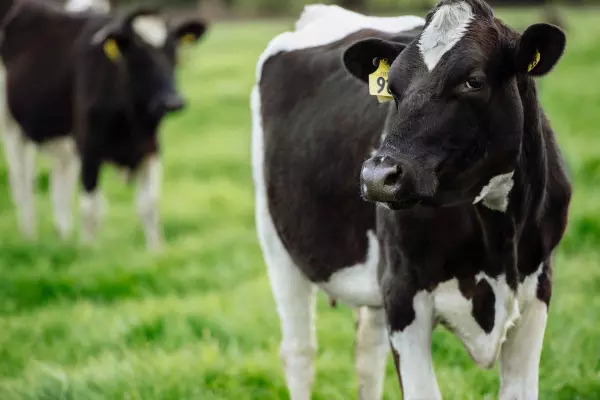Ngāi Tahu Holdings’ muscle-flexing squeezed Peter Cullinane out of the board of seafood company Sanford last week.
Cullinane, known best for being the Lewis Road Creamery founder, had been on the seafood company’s board since 2019.
He was up for re-election as a director at last week's annual meeting but quit abruptly the day before due to major shareholder Ngāi Tahu Holdings making it known that it would be voting against his re-election to the board.
But Cullinane told BusinessDesk that there was “nothing personal” behind the surprise decision.
'Surprise'
Cullinane said on Tuesday that he couldn’t speak for the Sanford board – but the reaction from members had been one of “surprise”.
“I would say there was universal disappointment and surprise,” he said.
Although the no-vote was “sort of” unexpected, Cullinane said it’s not the first time that Ngāi Tahu Holdings – which owned 19.9% of Sanford – had chosen to vote against the re-election of another Sanford board member.
The same thing had happened at Sanford’s annual meeting last year – although Cullinane wouldn’t specify who on the board got the no-vote.
“I think it’s just their standard operating procedure,” he said. “Anyone whose name came up for re-election didn’t get their support.”
“It’s always quite hard to figure out what the message is meant to be but [in this case] it's meant to put the business on notice that they expect improved performance,” Cullinane said.
“It’s a bit like that old joke of ‘floggings will continue until morale improves’. And I think there's an element of that to it.
“But we were sure that it wasn’t a personal thing,” he added. “It's just a message being sent. These things happen.”
It's not the first time Cullinane had departed a company's board so hastily – he resigned as NZME chair before the media company's annual meeting in 2020 after Australian fund manager shareholders said he had to go.
Asked what he was planning to do next, Cullinane kept it short.
“Well, I’ll think twice about boards."
In a statement to BusinessDesk, Sanford board chair Sir Rob McLeod said Cullinane was a “highly valued and hard-working director” and had a background in NZ business that had been beneficial to the company.
“We are sorry to see him go, but it was his decision to withdraw his bid for re-election and we respect that."
Questions remain
Ngāi Tahu Holdings abstained from voting for new Sanford director David Mair at the meeting last week as well as voting against Cullinane.
According to an attendee at the meeting, Ngāi Tahu Holdings chair Mike Pohio (Ngāi Tahu, Ngāti Pikiao) attended in person, armed with a long list of questions for the board.
But the board refused to answer the questions put to it in person – opting instead to reply in writing. Sanford’s answers were published on its website last week.
Some of the questions Ngāi Tahu Holdings asked concerned Sanford’s underperforming divisions – Mussels and Inshore – and why a turnaround was preferable to divestment.
In response, Sanford wrote that it considered the company could achieve pre-covid profitability, which was the best option versus divestment.
“Additionally, in order for Sanford to achieve Group profits greater than prior to covid [ie into the $70 million-$80m earnings before interest and taxes (Ebit) range], we need to expand our product offerings across a more value-added range to consumers.”
Ngāi Tahu also wanted to know why there appeared to be an “inappropriate balance” and use of capital between investment and shareholder returns.
Sanford replied that its board was “fully committed” to returning an appropriate level of dividend to shareholders.
“Sanford is an asset-intensive company, and these assets require care and attention to be operating at the levels required to enable longevity and safety of operations and to secure
long-term returns.”
Both Pohio and the corporation’s chief executive Craig Ellison (Ngāi Tahu) – who is also a Sanford director – were unable to be reached for comment.
Choppy financial waters
Sanford reported a net profit of $55.8m for the 12 months ended Sept 30 – an enormous 244% jump from the $16.2m the seafood company made in 2021 after the pandemic ate into its finances.
This year’s Ebit also rose 72.5% to $40.2m, up from $23.3m in the previous corresponding period, although the company hasn’t yet recovered to its pre-covid Ebit levels of $60m.
It was also the first time in two years that the company delivered a dividend to shareholders. The board declared a dividend of 10 cents per share payable on Dec 9.
The last dividend paid out to shareholders was 5 cents in June 2020.
Sanford’s share price has also been pummelled of late – falling more than 11% in the past year and an even worse 45.9% in the past three years. Sanford shares were down by 0.7% to $4.19 per share on Thursday.
This story has been edited to remove an incorrect statement on Clement Chia's role at Sanford.














